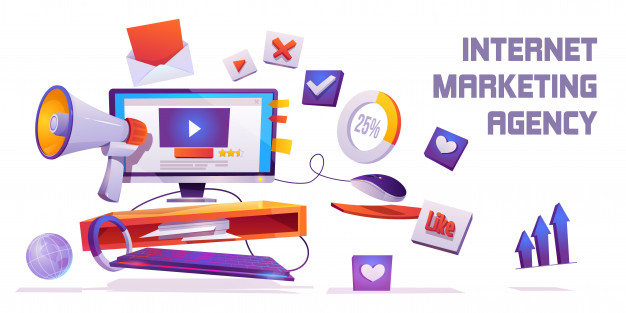How To Know If Someone Blocked You On iMessage? 5 Secret Hacks!
Apr 16, 2025

Apr 16, 2025

Apr 16, 2025

Apr 15, 2025

Apr 11, 2025

Apr 11, 2025

Apr 11, 2025

Apr 08, 2025

Mar 29, 2025
Sorry, but nothing matched your search "". Please try again with some different keywords.


The excessively competitive marketing world demands the constant need for innovative, effective strategies from marketers.
It’s important for businesses to find and seamlessly implement new ideas into their campaigns to navigate the competitive business landscape. Seeking guidance from a digital marketing coach can help streamline these strategies for better results.
Understanding the psychology behind consumer behavior is crucial in achieving this goal. It helps create campaigns that resonate with the target audience and drive desirable outcomes.
Successful growth marketing techniques rely on knowing how people behave and make decisions.
Therefore, to succeed in digital marketing, you must sell products or services and forge genuine connections with consumers.
Moreover, as a digital marketer or a business seeking digital marketing services, you must emphasize behavioral psychology principles.
These principles help you create compelling content and design user-friendly interfaces. Furthermore, they allow you to cultivate brand loyalty in a crowded online marketplace.
The first focus for marketers in behavioral psychology is social proof. This powerful marketing tool demonstrates how the actions and opinions of others influence people.
Therefore, you can use this psychology to build trust and credibility with potential customers. Moreover, it helps you incorporate social proof into your marketing campaigns in the following ways:
Social proof is effective because it taps into our innate desire to fit in and belong to a group.
Also, research has shown that social proof can be more persuasive than traditional advertising or marketing messages.
Therefore, social proof’s power is building trust and credibility with potential customers. It helps brands create a sense of community and encourage more people to engage further.

Understanding human psychology is crucial in digital marketing. This understanding enables marketers to use the following cognitive biases to create persuasive campaigns that resonate with the target audience:
For example, the anchoring effect relies heavily on the first information received when making decisions.
Framing pricing or product specifications can leverage this effect. In that light, you can use social proof to give your audience a peek into others’ actions and behaviors. This is one big factor that guides your targets’ decisions, especially in uncertain situations.
Furthermore, you may utilize social proof to highlight client testimonials, reviews, or user-generated material. All of these types of marketing material assist in establishing the value or credibility of your items or services.
Also, you can create a scarcity bias by placing a higher value on items perceived as scarce or in limited supply. However, if you use confirmation bias instead, you must seek information that confirms existing beliefs or opinions.
You can also create authority bias by involving and placing undue trust in perceived authority figures. Influencer marketing can achieve this.
Therefore, as a modern-age digital marketer, you must leverage these cognitive biases. They help enhance your brand’s reputation and credibility, influencing consumer perceptions and purchase decisions.
Establishing a sense of urgency in marketing may be an effective strategy for increasing conversions and sales.
By emphasizing restricted availability or using time-sensitive language and advertising like “act now” or “limited time offer,” you can instill a sense of scarcity or fear of missing out (FOMO).
However, it is critical to strike a balance between persuasion and pushiness. Make sure to emphasize the genuine value of your products and the benefits of moving rapidly for potential clients. Using urgency in your marketing initiatives may increase sales and conversions.
Another crucial psychological implication in today’s marketing suggests that people value rare or limited items more.
Therefore, marketing agencies, brands, and businesses often employ this principle to create a sense of urgency or exclusivity.
You can capitalize on this emotion using limited-time offers and exclusive access. They help trigger FOMO. Consequently, it drives your audience to take action by tapping into the psychological desire for uniqueness.
Moreover, you can use the psychology of scarcity to boost sales by limiting the availability of a product or service. This helps increase its perceived value and creates a sense of urgency.
Therefore, the psychology of scarcity is one of your effective tools to tap into your audience’s instinct to prioritize rare or hard-to-find items.
However, firms must balance promoting urgency and being unduly aggressive or deceptive. When handled correctly, scarcity may raise sales and the perceived value of a product or service.

Every good marketer needs to highlight their product’s features and connect those features with the target audience emotionally.
This process helps you create emotional appeals. In growth marketing, emotional appeals can help capture attention, foster engagement, and drive conversions.
Moreover, emotions play a significant role in decision-making. Therefore, you can leverage this part of the human psyche to create a sense of connection with your audience.
The following three functions count as the most important emotional tools for digital marketers:
Incorporating storytelling and personalization can enhance your brand’s memorability and resonate with its intended audience. Additionally, visually appealing graphics can evoke strong emotions and leave a lasting impact.
However, it’s essential to balance emotional connection with authenticity and transparency. Misleading emotions can harm the audience and erode trust.
Instead, highlight the product’s or service’s benefits and value and how it can improve people’s lives.
Therefore, emotions are crucial. They help drive human behavior, and you can create more effective campaigns that resonate with your target audience.
If you want your marketing campaigns to be effective, you must understand the psychology of decision-making. Emotions, biases, and beliefs can all impact people’s choices.
When marketers create cognitive biases, it can influence the way the audience’s brain processes information, potentially leading to errors in judgment.
However, marketers can use these biases to their advantage. Hence, you can highlight product benefits and frame them in a way that resonates with your audience.
Moreover, emotions heavily influence decision-making. Therefore, when you press this button, your key to success is creating a memorable campaign.
Next, you can influence your audience’s decisions using social norms and their behavior toward these norms. For this, you must showcase social proof, like customer reviews or testimonials, to build trust and encourage action.
Therefore, you can create campaigns that resonate with your target audience by leveraging their psychology. These actions directly help you derive reactions and achieve goals.
Understanding the psychology of decision-making is crucial for creating effective marketing campaigns.
Mashum Mollah is the feature writer of SEM and an SEO Analyst at iDream Agency. Over the last 3 years, He has successfully developed and implemented online marketing, SEO, and conversion campaigns for 50+ businesses of all sizes. He is the co-founder of SMM.
View all Posts
How To Know If Someone Blocked You On iMessag...
Apr 16, 2025
7 Website Design Mistakes That Are Hurting Yo...
Apr 16, 2025
Programmable Dynamic SEO for Location-Based P...
Apr 15, 2025
Google Boba Game: How To Play This Fun Game B...
Apr 11, 2025
Which Is The Best Video Search Engine Of 2025...
Apr 11, 2025

